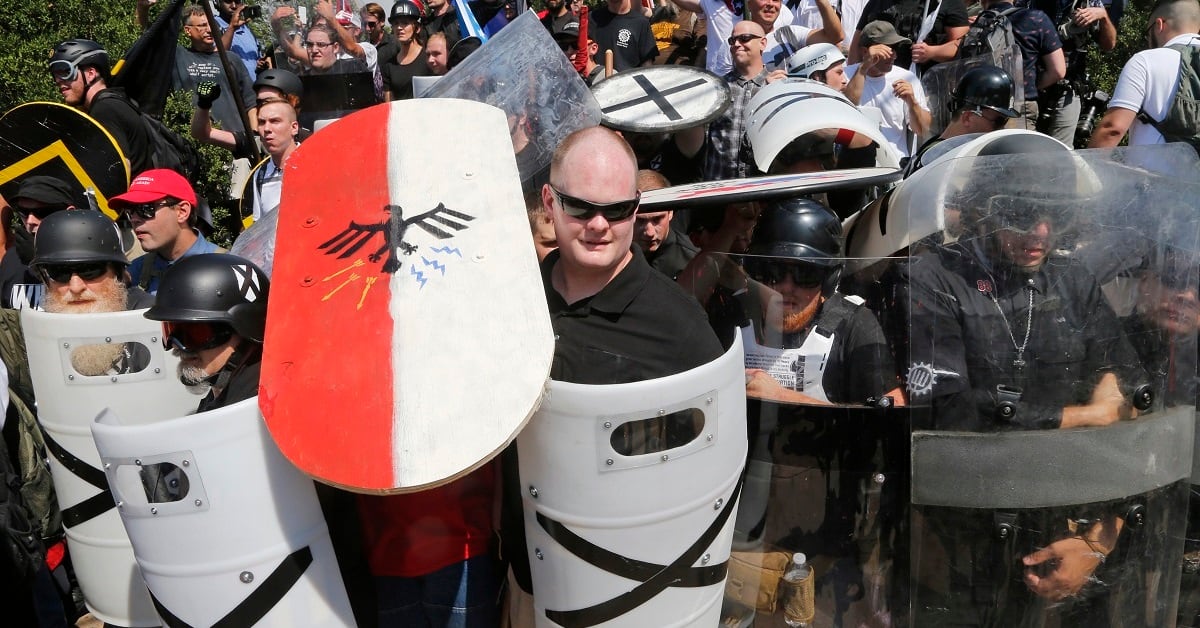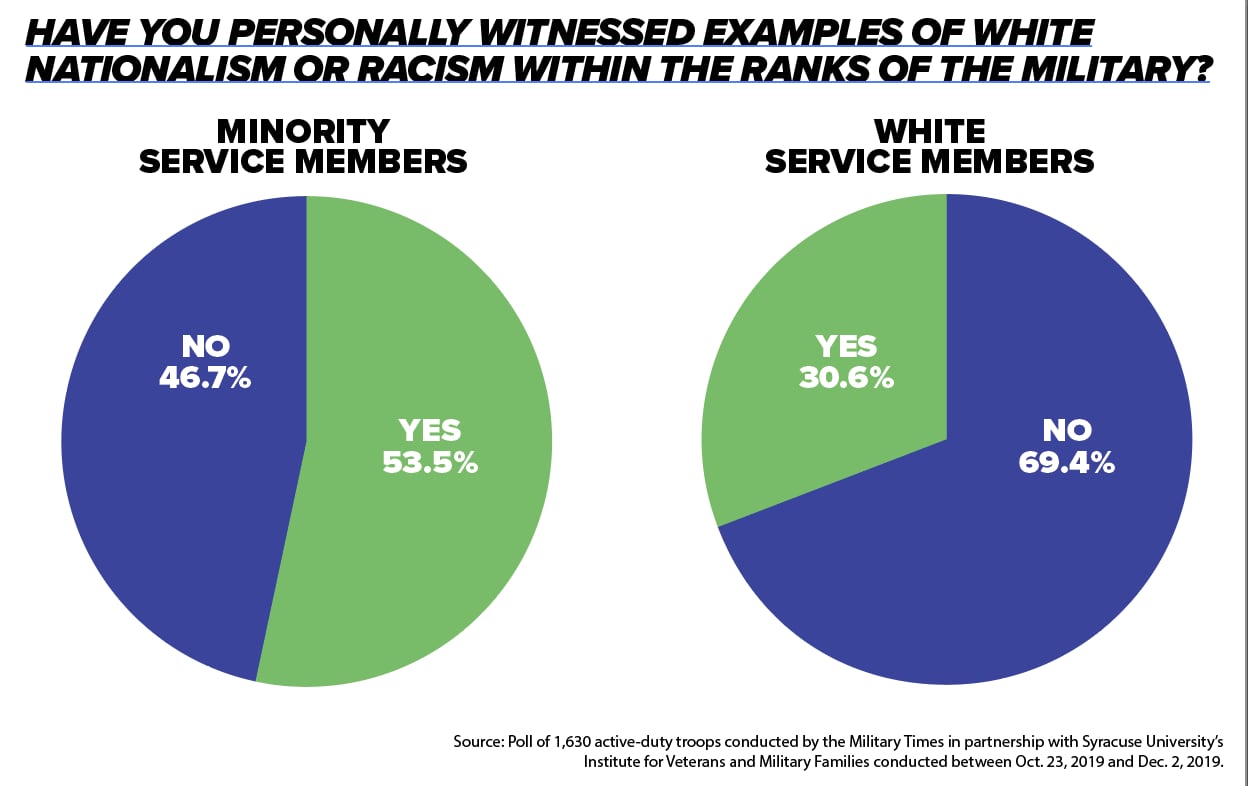Lawmakers are questioning whether military officials are taking the issue of white nationalism and extremism in the ranks as a serious threat, noting that the Pentagon has spent little time tracking the issue despite indications it is getting worse.
“I don’t think the military takes this threat seriously enough, has the tools it needs, or dedicates sufficient resources to the threat,” said Rep. Jackie Speier, D-Calif., chairwoman of the House Armed Services Committee’s panel on military personnel.
“The lack of urgency and focus trickles down to commanders and enlisted leaders, who don’t appear to be sufficiently apprised of this threat or taught how to deal with it. Even if they were dealing with it, the military lacks statistics to prove it.”
RELATED

The hearing comes less than a week after the release of new data from the Military Times Poll conducted last fall which showed more than one-third of active-duty troops polled and more than half of minority service members polled have seen examples of white nationalism or ideological-driven racism among their fellow troops.
That is up significantly from the same poll conducted a year earlier, and follows a host of incidents of service members being connected to racist groups, online hate forums and extremist crimes in recent months.
Officially, military services have reported only a small increase in criminal investigations related to extremist activity in the ranks. Army officials reported seven investigations in 2019, up from a typical yearly average of about three.
Air Force officials said they have found evidence of service member involvement in extremist groups in only one case in the last six months. In that case, the airman received a rank reduction for his work fund raising for a group espousing racist views, but was allowed to remain in the service under current military rules.
Outside experts told lawmakers that military members are prized by extremist groups looking to incite violence because of their combat skills and firearm training, and they have seen evidence of increased recruiting in recent years.

Despite warning signs, and despite public pronouncements from senior leaders that any affiliation with extremist groups is forbidden, those outside advocates said the Defense Department has not done enough to monitor cases of extremism among military units. That makes fighting the problem difficult, because officials don’t have a good grasp of the problem.
“We need that data,” said Heidi Beirich, chief strategy officer for the Global Project Against Hate and Extremism. “The Military Times poll has become a stand-in for that. But the military needs to be collecting it.”
Lawmakers did include in the annual defense authorization bill last year include in command climate surveys of troops whether individuals have seen “extremist activity” in the workplace.
And Stephanie Miller, director of accessions policy for the Pentagon’s personnel office, said officials are using new technology and screening tools to look for signs of problematic behavior among recruits, to prevent potential hate groups from gaining a foothold in the services. Officials said they are also moving to a “continuous vetting” approach to ensure problems that emerge later are caught.
Miller said the military has conducted some internal polling on the issue of extremist activity in the ranks, but those results were different from the results in the Military Times poll. She did not offer any specific numbers.
“We believe we have been effective at screening for individuals that have extremist ideologies or support extremist groups,” she said. “But we continuously review our policies, our practices and our methods for improvement.”
RELATED

But advocates noted that show behavior seen by fellow troops can be hidden from leadership figures. Military leaders, they said, need to rely more on data collected from rank-and-file members.
“We need to encourage people to say something when they see something,” said Mark Pitcavage, senior research fellow at the Anti-Defamation League. “But we also have to give people educated eyes. We have to give them the training, the ability to be able to recognize signs of extremism.”
Lawmakers on the committee said they will look into whether new legislative measures and training requirements are needed to ensure those kinds of changes are made. Several expressed concerns that membership in hate groups itself is not enough to warrant dismissal from the military under current policies, and said they will look into new legal rules to require that.
“No group is more diverse and culturally integrated than our U.S. military,” said Rep. Trent Kelly, R-Miss, ranking member of the personnel panel. “We must keep it that way ... Extremist activities are unacceptable and cannot be tolerated in the military."
Leo covers Congress, Veterans Affairs and the White House for Military Times. He has covered Washington, D.C. since 2004, focusing on military personnel and veterans policies. His work has earned numerous honors, including a 2009 Polk award, a 2010 National Headliner Award, the IAVA Leadership in Journalism award and the VFW News Media award.




